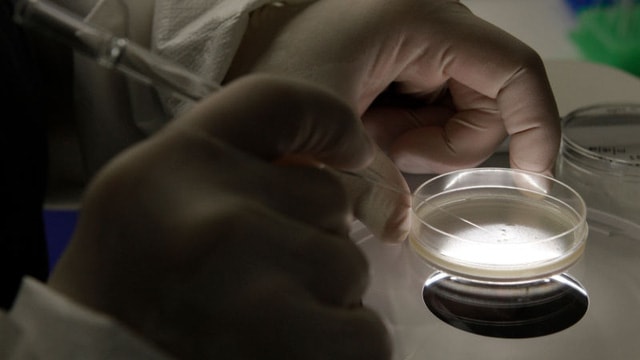Cure disease by gene editing
For the first time in history, researchers at Sun Yat-sen University (Guangzhou, China) have successfully applied a new gene editing technique to cure a blood disorder in human fetuses.
 |
| Ethics is the biggest barrier in applying gene editing technology in humans - Photo: AFP |
The work, recently published in the journal Protein and Cell, is considered very promising, although there is still a long way to go before it can be widely applied.
Called "chemical surgery", the gene editing method used by Chinese researchers was introduced a year ago by a group of scientists from Harvard University (USA), led by Professor David Liu.
Speaking to the science news site Gizmodo, Professor Liu compared the method they invented to Brazilian Jiu-Jitsu. While other traditional martial arts use fists, elbows, knees... to attack opponents, Jiu-Jitsu uses the opponent's own weight and strength against them.
Gene editing by "chemical surgery" is similar to Jiu-Jitsu in the principle of using softness to overcome hardness. While CRISPR/Cas gene programming technology "violently" cuts and replaces faulty DNA strands, "chemical surgery" will correct errors (the cause of disease) directly on the genetic code.
This is the first time the Harvard team's method has been applied to a human fetus, although not in the womb, to treat beta-thalassemia - a genetic blood disorder that affects 1 in 100,000 births.
Sun Yat-sen University researchers were also the first group in the world to pioneer CRISPR/Cas testing on human fetuses.
According to the Guardian newspaper, expert Robin Lovell-Badge of the Francis Crick Institute (London) assessed the new research as very promising, although he also cautioned that gene-edited fetuses could still have potential problems.
Sun Yat-sen's group also admitted that the new technique cannot be applied immediately in clinical practice, but it shows the feasibility of curing genetic diseases in humans from the fetal stage.
Currently, in many countries and territories, including the United States, implanting genetically edited embryos into the human body, by any method, is considered illegal.
However, experts still predict that the era of human genetic programming is approaching with each breakthrough success of scientists.
This process, although not happening quickly, has given people enough time to reflect on the social consequences of technology.
If used correctly, genetic programming promises to open up a new future for humanity in preventing and curing deadly diseases.
According to TTO
| RELATED NEWS |
|---|

